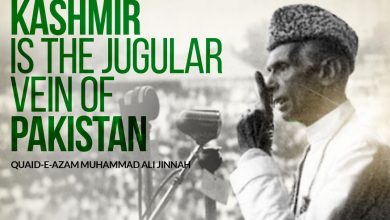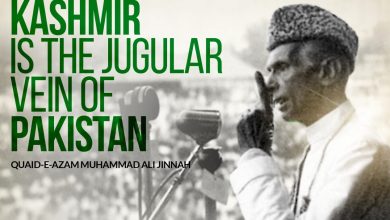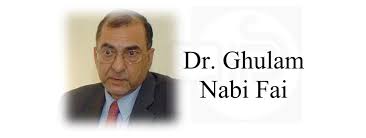Three reasons why Modi’s claims of the ED’s ‘Independence’ don’t hold water
Sravasti Dasgupta
 Data on action taken by the ED in the last decade; amendments to PMLA which widened the scope of powers of the agency, under which opposition leaders have faced action; and the links between the ED’s actions on electoral bond donors puncture holes into Modi’s claims.
Data on action taken by the ED in the last decade; amendments to PMLA which widened the scope of powers of the agency, under which opposition leaders have faced action; and the links between the ED’s actions on electoral bond donors puncture holes into Modi’s claims.
Amid increasing questions about the weaponization of the Enforcement Directorate (ED) against opposition leaders and the alleged misuse of the Prevention of Money Laundering Act (PMLA), Prime Minister Narendra Modi has said that the central probe agency functions in an “independent” manner.
“Has the ED been created after we formed the government? No. Did we bring the PMLA law? No. It was there before. So what is the question? ED is an independent organization and is working in an independent manner, he said in an interview with Thanthi TV on Sunday (March 31).
“Neither do we stop the ED nor do we send it. It has to work independently and its work will be judged by courts,” he continued.
“Of the 7,000 cases with the ED, political cases are less than 3%. When they were in power, in ten years they got Rs 35 lakh in cash. We have seized Rs 2,200 crore in cash.
“We have found cash inside washing machines, inside water pipes in homes, cash across the bed. From a Congress MP, Rs 300 crore have been seized, in Bengal mountains of cash have been seized from ministers’ homes.
“Now all this is visible. So are the people of the country ready to tolerate this? I don’t believe so,” Modi said.
When asked about the disproportionate action against opposition leaders and inaction against Bharatiya Janata Party (BJP) leaders, Modi further said that irrespective of the party, the ED’s process remains the same.
“Regardless of the party, the process is the same. ED cannot act on its own, other departments need to file FIR in the cases first, then ED takes action. The PMLA law was there but they never used PMLA.
“In order to stop ED from working, they tried to weaponise [the] courts. Over 150 court cases were filed to exempt the PMLA law. Because they knew that Modi’s fight against corruption will not stop, so their effort was to stop the work of the agency itself through courts,” he said.
Here we examine three reasons why the prime minister’s claims of the independence of the ED’s actions don’t hold water.
1. Data belies Modi’s claim of ED’s independent functioning
The figures given by Modi are an apparent reference to the data published by the ED in March 2023, when it said that from 2005 to January 2023, it has registered 5,906 cases, of which only 25 cases – a mere 0.42% of the total cases – have been disposed to make the claim of a 96% conviction rate.
Of the 25 cases, the agency has managed convictions in 24 cases.
But the fact that in nearly two decades of existence, the agency has managed to conclude only 25 cases is glaring and quite telling of both how the state machinery and judiciary work.
The data also said that in only 3% of the total cases, incumbent and former elected representatives are accused. It further said that of the 5,906 cases, only 176 involve sitting and former MPs, MLAs and MLCs.
In September 2022, an investigation by the Indian Express in September 2022 revealed that there has been a four-fold jump in ED cases against politicians since 2014, when the Modi-led Bharatiya Janata Party (BJP) first came to power.
The investigation showed that 121 prominent politicians had come under ED probes between 2014 and 2022, of which 95% or 115 were opposition leaders who had been booked, raided, questioned or arrested.
Since then, several other leaders from the opposition have been arrested, including former Delhi deputy chief minister Manish Sisodia (February 2023), former Jharkhand chief minister Hemant Soren (January 2024) and Delhi chief minister Arvind Kejriwal and Bharat Rashtra Samithi leader K. Kavitha this month.
The jump in cases being probed by the ED is clearly visible in the data provided by the Modi government itself in parliament.
In March 2022, the MoS Finance Pankaj Chaudhary in a written reply in the Lok Sabha said that while 112 searches were conducted by the ED in money laundering cases between 2004 and 2014 (UPA era), this number jumped by over 26 times in the period between 2014 and 2022, when 2,974 searches were conducted.
In the same reply, the junior minister stated that while 104 prosecution complaints were filed between 2004 and 2014, this jumped to 839 prosecution complaints between 2014 and 2022.
According to an investigation by Scroll in July 2022, of the 4,700 cases filed under the PMLA since it came into force in 2005, nearly half, or 2,186 cases, have been filed between 2017 to 2022.
In August 2021, the Times of India reported that the ED filed a list of 122 names in the Supreme Court of former MPs and MLAs being investigated under the PMLA, and of this, 52 names belonged to legislators from opposition parties.
2. Amendments to PMLA widened ED’s powers of arrests, seizures, denial of bail
While Modi is right that the PMLA was not brought in by his government, amendments made to the law over the years have made it draconian.
The PMLA was enacted in 2002 (under the then-BJP government) to tackle black money generated through international drug trafficking.
However, amendments to the law in 2012 (under the UPA government) and 2019 (under the Modi government) have significantly widened its scope, with new scheduled offences that have been added (against the original 40 offences under six laws, now there are 140 offences under 30 laws).
While speaking about the cases against opposition leaders, Modi claimed that the ED cannot act on its own and can only act if there are FIRs lodged by the police or other agencies, but the cases faced by the opposition leaders in recent years have been under the PMLA.
And the amendments to PMLA have now made the law retrospectively applicable, while the definition of money laundering was widened and the mere possession of the proceeds of a crime has been rendered prosecutable without any safeguards regarding knowledge that the said properties were proceeds of crime.
The requirement of a prior FIR or chargesheet by other agencies for ED proceedings to commence has also been dispensed with.
In 2022, a Supreme Court bench headed by Justice A.M. Khanwilkar upheld a draconian version of the PMLA under which bail is virtually impossible and the onus is on the accused to prove they are innocent.
The judgment, authored by Justice Khanwilkar two days before his retirement, upheld the wide powers of the ED to issue summons, record statements, make arrests and search and seize property.
It was also held that the Act, which imposes its own bail conditions, is not a penal law.
Speaking at a seminar titled ‘The Supreme Court’s recent trend on cases involving Civil Liberties and Political Rights’ last month, senior advocate Kapil Sibal said that in PMLA and ED cases, arrests are made under suspicion and reasons for summons and offences are not disclosed.
“Have I no right to know? I am not talking about cases where there is a murder [and] there are eyewitnesses. In these so-called economic offences and offences against the state as in UAPA [Unlawful Activities (Prevention) Act] and PMLA which have draconian provisions which according to me are entirely unconstitutional.”
3. ED raids and electoral bonds
Further, while Modi claimed that the ED cannot act on its own, questions on its independence have also been raised by the Supreme Court-mandated data published by the Election Commission of India earlier this month on electoral bonds between April 2019 to January 2024.
The Wire has reported that the top donors include companies that were raided or under the scanner of Union government agencies, including the Income Tax Department and the ED, and also reported that three of the top five donor companies donated their largest amounts to the BJP.
In addition to the top donors, Project Electoral Bond has also reported that at least 14 other companies that donated bonds faced action by Union government agencies, including the ED.
The author is a New Delhi based journalist.








